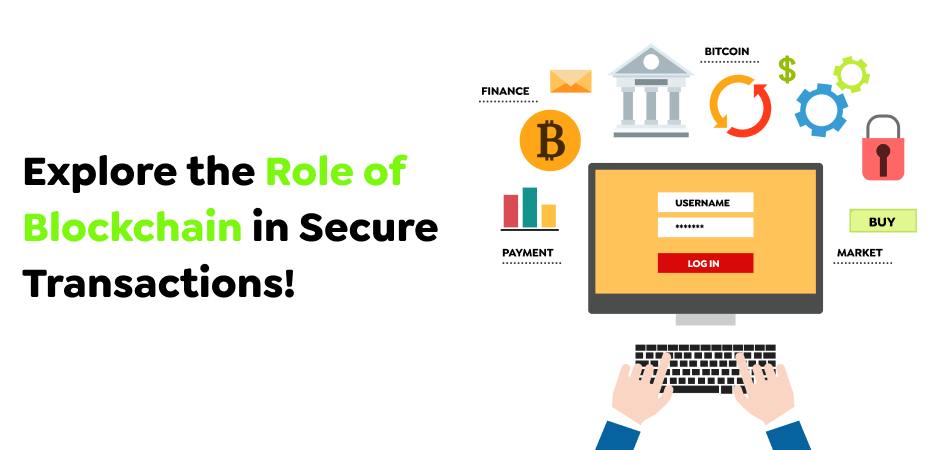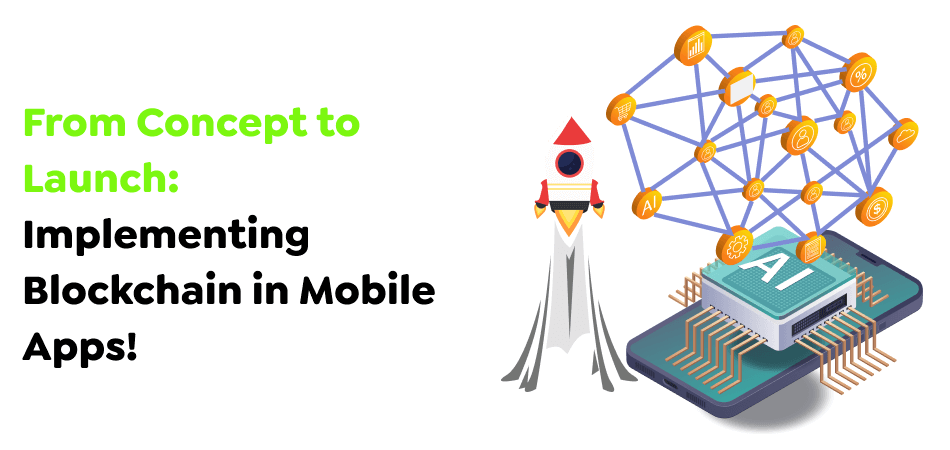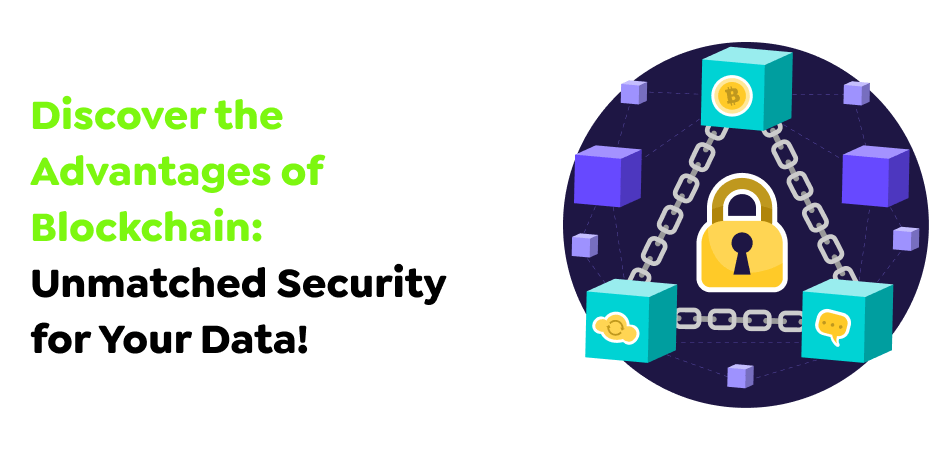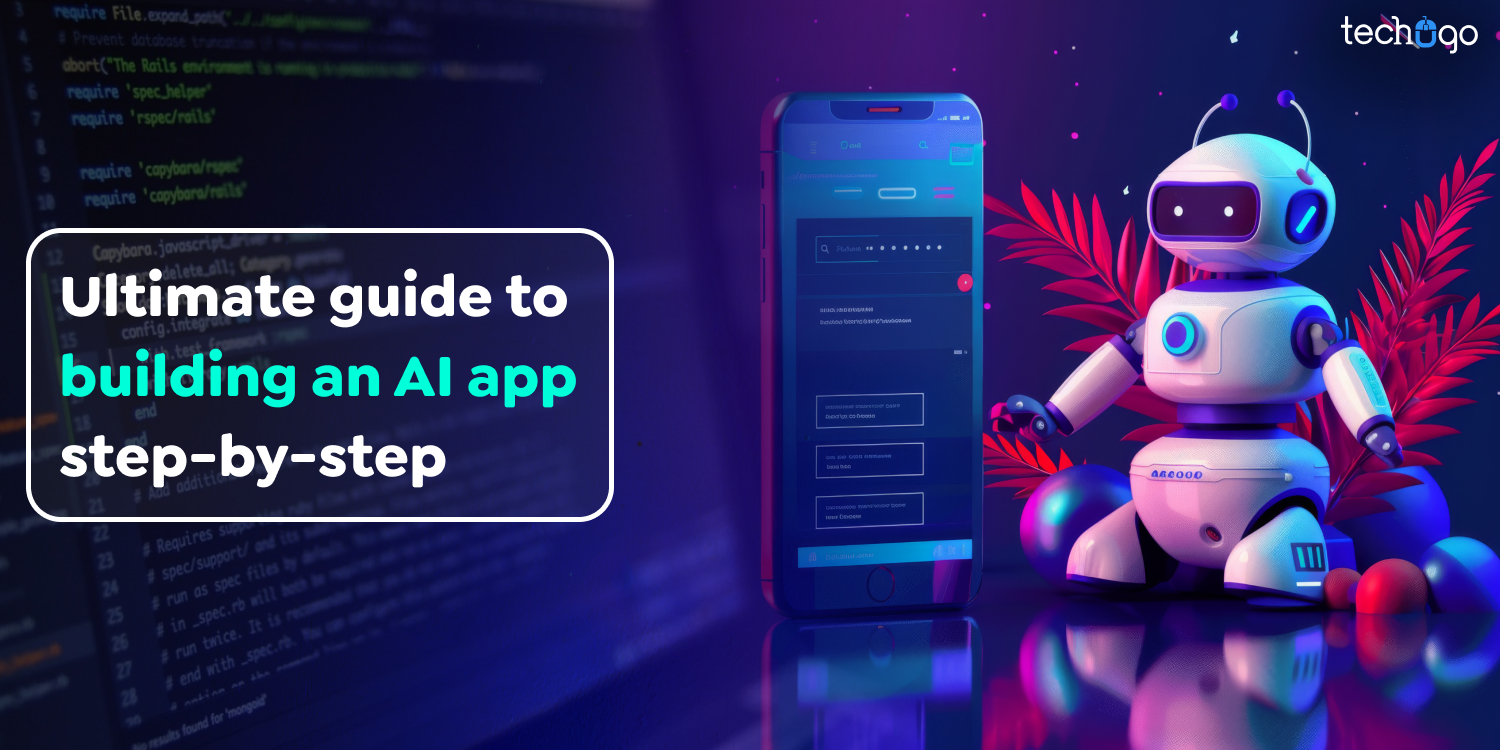4 Nov 2024
Updated on January 30th, 2025
Transforming Industries: The Significance of Blockchain App Development
Matthew Connor

In the last two decades, Canada has become an important source of innovation in the blockchain sector. Canadian companies working in the area of technology and companies are now focusing on integrating blockchain into apps designed for mobile devices, which will lead to the development of new applications in various fields.
Mobile apps are now a crucial element of our lives in the technological age. Apps for mobile have transformed how we interact with technology, from communication to banking, entertainment, and shopping. With the rise of mobile apps, there’s an increasing need for reliable, secure, and efficient solutions that are transparent. This is when blockchain technology enters the picture. This blog will explore ways to enhance blockchain app development by examining its advantages, role of securing mobile transactions, and how to implement blockchain technology in mobile apps.
Why use Blockchain in Mobile Apps?

Blockchain technology is always linked to transactions involving cryptocurrency. However, recent developments have pointed to blockchain as a secure database accessible through any mobile app. Blockchain app development is utilized to create decentralized ledgers that can monitor transactions between various parties. The data is then distributed to all parties, enhancing security and encrypting the data. There is no way to conduct fraudulent transactions, and no one can disrupt the transactions.
Nowadays, various industries have started incorporating this aspect that blockchain technology plays to offer products and services. The digital transactions of the past are more easily accessible, and peer-to-peer transactions on mobile applications are now more transparent because of the technology. Blockchain technology allows the storage of all transaction data securely.
Blockchain technology is likely to disrupt existing business models by using low-cost solutions. It could automate long and tedious processes.
In addition, blockchain technology demands secure encryption methods, which can ensure it stays ahead even if cryptocurrency were to end. Blockchain tech is supported by significant sector corporations, health and financial institutions, real estate syndicates, and other companies that require secure transactions.
Also Read : The Transformative Power of Blockchain Decentralized Finance: Unlocking New Opportunities
Understanding Blockchain Technology
Before exploring how blockchain app development protects transactions in mobile apps, it is essential to grasp the fundamentals of blockchain tech. Blockchain is a decentralized and circulated ledger that tracks transactions across various computers to ensure that the information is not modified retroactively. Every transaction is recorded as a “block,” and these blocks are linked to create a “chain.”
Blockchain technology is decentralized. This implies that no one entity is in charge of the entire blockchain. This makes it invulnerable to tampering and fraud. The key characteristics of blockchain technology include:
1. Decentralization:
Unlike traditional centralized systems, where one entity is responsible for information, the blockchain operates with a decentralized system of nodes. Each node owns an exact copy of the blockchain, ensuring no fail-over point is in place.
2. Transparency:
The transactions on blockchains are made visible to all the participants within the system. This transparency assures trust and accountability between the users.
3. Immutability:
When a transaction is registered on the blockchain, it is indestructible and cannot be changed or erased. This ensures the authenticity of the information and helps prevent fraud.
4. Secure:
Blockchain uses advanced cryptographic methods to ensure the security of transactions. Every block is connected to the previous block by an encryption hash, making it almost impossible to alter data without being spotted.
Also Read : Revolutionizing Fintech: The Role of React Native App Development
What to Consider Before Adopting Blockchain?
While blockchain may provide tremendous benefits, it also has its challenges. Mobile app developers need to consider these aspects before jumping in.
1. Scalability Issues
Blockchain networks can process specific numbers of seconds, which could cause delays. This could create a bottleneck for those who specialize in Android and iOS mobile application development, particularly for applications that need instantaneous data processing.
2. Development Complexity
Blockchain requires specialized knowledge and expertise. A mobile app development company in Canada working on native mobile applications must be familiar with blockchain protocols, which adds a new layer of complexity. Business owners must ensure that the firm creating mobile apps has the proper knowledge.
Role of Blockchain in Mobile App Transactions

The features of blockchain technology make it an excellent solution for securing transactions made by mobile apps. Here’s how blockchain app development is improving your security when you use mobile applications:
1. Decentralized Security
Traditional transactions on mobile apps are typically processed on central servers, which makes them susceptible to data breaches and hacking. Contrary to this, blockchain’s distributed nature spreads data over multiple nodes, decreasing the possibility of one source of error. Even if a single node is compromised, the integrity of transaction data is not compromised because all the network nodes have the correct data.
2. Enhanced Data Integrity
Data integrity is an essential element for secure transactions. Blockchain ensures that once a transaction has been registered, it can’t be deleted or altered. This mutability is accomplished using cryptographic hashing, in which each block is a hash of the prior block. Any attempt to change the information in a block could change its hash, creating a gap in the chain and alerting the network of possible fraud. This makes blockchain the ideal method for ensuring the security of transactions made through mobile apps.
3. Secure User Authentication
Blockchain technology provides an authentic and secure method of authenticating users without relying on traditional methods like passwords, which are susceptible to phishing and hacking attacks. Blockchain-based mobile applications can use digital identities secured with cryptographic keys. The users are given an exclusive private key that is used to verify transactions and sign the transaction. This technique removes the need for passwords and guarantees that only the authorized user can start transactions.
4. Transparent Transaction History
Transparency is another essential characteristic that blockchain technologies offer. When a mobile app is built on blockchain technology, each transaction is recorded on a public ledger accessible to all network users. This transparency lets users confirm that transactions are authentic and ensures that no illegal or untraceable transactions occur. Furthermore, the transparency of blockchain technology can stop double-spending, which is a frequent issue with digital transactions.
5. Smart Contracts for Automated Security
Self-executing intelligent contract agreements that have the agreement’s terms directly written in code. They automatically complete transactions when the pre-defined conditions are fulfilled. Mobile apps that use blockchain can utilize smart contracts to make transactions more secure and automated, which reduces the chance of fraud and human error. For instance, smart contracts can immediately transfer funds from the user’s account to the merchant’s account after the customer confirms the receipt of goods, ensuring an efficient and secure transaction process.
6. Protection Against DDoS Attacks
Distributed DDoS Attacks are frequent threats to mobile apps. In these attacks, attackers overload the server with data and cause it to fail. Blockchain’s decentralization capabilities will help reduce the chance of DDoS attacks by dispersing the network’s load over multiple nodes. Because there isn’t a central server to attack, it is less complicated for attackers to disrupt the system.
7. Tokenization of Assets
Blockchain technology allows tokenizing assets utilized to protect transactions within mobile applications. Tokenization is converting sensitive information like credit card numbers into unique tokens that can be used to make transactions. The tokens are kept on the blockchain to ensure the original data is safe. If there is a data breach, attackers will only have access to the tokens, which are ineffective without the data they are corresponding to.
Also Read : Stay Ahead of the Curve: 8 Effective Ways to Protect Your Fintech App
How Blockchain Keeps Secure Transactions in a Mobile App?
Blockchain has many advantages that make it ideal for enhancing the protection of mobile app development services. Let’s look at how these functions can be used to ensure that applications are safe and secure.
1. Decentralization and Transparency
A significant and attractive feature of blockchain is that it’s not centralized. Blockchain transactions are monitored by various network nodes, as opposed to traditional systems that rely on an authority central to the system’s confirmation. This makes it more resilient to single-point failures, which reduces the chance of hacking or fraud.
It’s also transparent because every transaction is documented on a publicly accessible ledger, which is accessible to anyone who is connected to the system. This is one reason why people tend to believe in blockchain: because of its transparency. Compared to traditional ways of doing business, only a few instances of fraud can be detected.
2. Immutable Records
Once a transaction has been recorded within the Blockchain, it cannot be altered or erased. The inertia incorporated into this ledger keeps the transaction record unaffected by manipulation and offers an additional safety assurance. Mobile apps guarantee that the record of transactions is not susceptible to being altered. This is particularly useful in financial applications where data security is a significant priority.
3. Smart Contracts
Blockchain can also enable smart contracts, which are self-executing agreements between two people for transactions identified by code lines that define the conditions and terms included in the contract.
Smart contracts are based on legally binding terms. This means there is no requirement for a third party, as the chance of involvement from a third party is reduced due to their structure. In the case of transactions using mobile applications for phones, intelligent contracts trigger actions like making money transferable when specific situations that were previously specified occur. This helps reduce the possibility of fraud and human error and makes transactions safer.
4. High-level Security of Data
Blockchain’s encryption methods are superior to traditional security techniques. Each transaction is secure and linked to the previous one, creating a secure data chain.
Mobile applications’ information of users linked to financial data is very secure, which means there is less chance for hackers to access it. Even if a single block is compromised, other blocks are secured, making the hackers unable to access the entire transaction history.
5. User Anonymity
Blockchain is a highly secure technology. Most blockchain users are identified using their unique digital addresses rather than personal data, which guarantees their identity and safeguards them from identity theft. Canadian mobile app users can make transactions safely and be confident that their data is safe.
Also Read : How AI is going to transform Fintech in Canada
How to Implement Blockchain Technology in Mobile Apps?

Are you ready to remain on the market and utilize blockchain security when developing applications? Here are a few suggestions for incorporating this cutting-edge technology into your next mobile application.
1. Define the Feature
The initial step to creating an encrypted blockchain app begins by identifying characteristics that encourage user interaction. Once you’ve identified the application’s attributes, integrate them into your application to protect it from cyberattacks. Implementing the proper features will aid users in interacting with the app and improve their participation while ensuring your blockchain-based app’s security.
2. Choose the Blockchain Platform
Many blockchain-based platforms exist, such as Ethereum, Hyperledger, Avalanche, Eris, Multichain, and others. You can explore integrating these platforms to enhance protection for your mobile applications. Before choosing one, conduct extensive research to determine which one best suits your application’s needs.
3. Select the Design Architecture
After you’ve decided on your blockchain-based system, you need to select the right layout that will meet your company’s particular requirements. You can choose a cloud-based hybrid or an internal solution for hosting blockchain. Be sure that you’re in sync with the tech stack you select and the platform (iOS or Android) on which the application will be running.
4. Decide on UI/UX Design
Now, you must create an intuitive design that’s not just visually appealing but also organized and clear. It also provides the highest level of security. On the other hand, you should set up a control panel that supervises the efficient functioning of the entire blockchain network.
5. Limit the Transactions’ Numbers
The next step in integrating blockchain security in mobile apps is identifying the exact number of transactions. Blockchain technology can limit the number of transactions your app can support. It will allow you to maintain track and monitor the transfer of data and help make your application more user-friendly and organized as well as secure Blockchain App Developers.
Once you’ve laid the groundwork for your blockchain-based app, it’s time to choose the top blockchain app development company. A team with proven abilities and expertise will assist in creating a secure blockchain application with all the features needed to help bring your vision into reality.
Also Read : Revolutionizing Money Lending: The Impact of AI and Machine Learning
Advantages of Blockchain

There are numerous advantages of blockchain technology in various industries that would not be possible with conventional methods to record transactions. This is due to two primary benefits: easy to access and safe. Let’s examine the advantages of blockchain technologies:
1. Decentralization
Decentralization is a crucial element in blockchain technologies. It enhances security due to the distribution of controls over the blockchain. This eliminates the chance that one failure point could be a problem and creates trust among those who validate transactions.
2. Security and transparency
Blockchain uses advanced cryptography techniques to ensure transaction safety. Unique identifiers for each block create a tamper proof setting that makes it challenging for thieves to change historical information. Transparency is fundamental to the blockchain; everyone can access it in real-time. Data sharing decreases the possibility of mistakes and increases trust among users who can independently confirm transactions.
3. Immutability
Blockchain’s immutability guarantees the authenticity of recorded information. Once the data has been recorded, it is indestructible and an effective deterrent to fraud.
4. Efficiency and Speed
Blockchain permits the direct exchange of data between users, eliminating intermediaries while streamlining processes. Smart contracts automatize transactions and eliminate the requirement for manual interventions. This decreases the chance of errors that may occur during the manual implementation of contracts.
5. Data Integrity
A redundant storage network enhances the system’s resilience while guaranteeing the integrity of information. Consensus mechanisms are also helpful in maintaining data consistency across the network.
6. Innovation
Blockchain technology can be used to build Decentralised Applications (DApps) that allow for the development of innovative solutions across various industries. It is secure and decentralized, which allows for the development of novel business models that support the creation of new technologies in various industries.
Disadvantages of Blockchain
As with any other blockchain technology, it has many benefits; however, it has its disadvantages and pitfalls.
1. Scalability Issues
Problems with scaling continue to be an obstacle to certain blockchain platforms, especially as the volume of transactions increases. This issue could manifest as processing delays in times of high demand, which may affect the efficiency of the process.
2. Energy Consumption
Consensus mechanisms, particularly those that use high-energy Proof of Work (PoW) in some blockchains, like Bitcoin, can be a source of controversy due to their massive computational requirements. The increasing use of energy causes concern about the impact on the environment, particularly as blockchain networks expand.
3. Lack of Regulation
A complete set of regulations for blockchain is necessary for clarity, especially in areas with clear guidelines essential for compliance and approval. In the absence of rules, it could hinder wider acceptance.
4. Interoperability Issues
Blockchains that use various protocols encounter issues in achieving seamless interaction. This absence of standard protocols for communication hinders the efficient exchange of data and assets across different blockchains.
Reasons to Develop Blockchain Application

Why should you create your blockchain-based application? Let’s explore the numerous advantages that could boost your operation and give you an edge over your competitors:
1. Public Verification
Blockchain technology is a public way to verify the authenticity of transactions. Anyone can view all transactions, which can help increase trust between parties.
2. Transparency
Everything is recorded in the public ledger. This can help prevent corruption and fraud by making transaction tracking easier and ensuring their authenticity.
3. Privacy
In addition, blockchain app development ensures absolute security and privacy. Cryptocurrencies such as Bitcoin allow users to make transactions without disclosing their identities.
4. Integrity
Blockchain technology utilizes cryptographic methods to protect transactions and stop any unauthorized modifications. The information stored on the blockchain cannot be changed or deleted.
5. Easy Transactions
Blockchain app development streamlines transactions by removing intermediaries and automatizing the process. By streamlining processes and decreasing time, it helps businesses reduce costs and improve efficiency.
6. Cryptocurrency Exchange
Blockchain-based apps provide a quick and secure method for purchasing and selling cryptocurrency. They offer an easy-to-use interface, low costs, and quick transaction processing time.
7. High Security
Utilizing cryptographic techniques to secure transactions and protect against unauthorized access. Additionally, blockchain applications’ decentralization makes them less susceptible to hacking and other cybersecurity threats.
Blockchain Technology Use Cases in Mobile Apps Based on Industry
We’ve already discussed how blockchain can be viewed as a platform that can be used for managing data, which implies that any solution within the Blockchain area will revolve around the storage of data. These cases demonstrate how companies can utilize blockchain app development solutions to increase transparency and protect themselves.
1. Healthcare
Blockchain technology has significantly changed the way healthcare is conducted. It provides a clear and universal representation of the patient’s medical records, allowing medical professionals to provide immediate medical attention to patients thanks to up-to-date and well-organized medical records.
Blockchain is also able to confirm the legitimacy of drugs. It can be traced to the source of any drug or chemical, which has helped manufacturers recall specific chemicals found in aids drugs.
2. FinTech
FinTech and blockchain technology have provided peace to the average bank customer by automating many of their financial operations. Immutability and transparency have also been added to prevent disputes. Customers are now able to use smart cards with blockchain technology. Smartcards facilitate faster money settlement without a central authority certifying their authenticity.
3. Document tracking
Blockchain technology offers an immutable, distributed, and secure document tracking system. By storing documents on the blockchain, everyone has the same access to information. Blockchain technology ensures that documents are safe because they are indestructible.
4. Contract Execution
Blockchain’s smart contracts provide the platform for contract execution that guarantees the highest levels of transparency. Because the service is distributed, all parties are equally aware.
5. Automotive
The biggest challenges facing the automotive industry are managing supply chains and preventing counterfeit parts. Blockchain platforms can offer complete records of the transportation of automobile parts. This enables car companies to trace genuine spares and distinguish them from counterfeit ones.
Blockchain technology has also impacted industry efficiency. Businesses can run their operations at optimum efficiency without any downtime, and there are a plethora of vital components.
6. Transportation and Logistics
The logistics and transport industries depend heavily on identifying passengers and goods. Passengers can make the process simpler and speedier by using a single token.
Blockchain platform-as-a-service is a fail-safe mechanism that industries and other data silos can use.
Conclusion
Blockchain’s role in the development of mobile apps cannot be overstated. From increasing transparency and security to facilitating peer-to-peer transactions and making processes more efficient, blockchain technology can provide a variety of advantages for both users and businesses. By integrating blockchain technology into the development of mobile apps, companies will gain an edge in the market, increase customer confidence, and create new possibilities for growth and innovation. As the need for reliable and secure mobile applications increases, blockchain app development is becoming increasingly essential for companies that want to succeed in the new digital economy.
Get in touch with Techugo today to discuss your blockchain app development needs and discover innovative solutions tailored to your business!
Get In touch
We are excited to here from you and let’s start something special Together. Call Us for any inquiry.
Write us
sales@techugo.caJust a call away
About you




